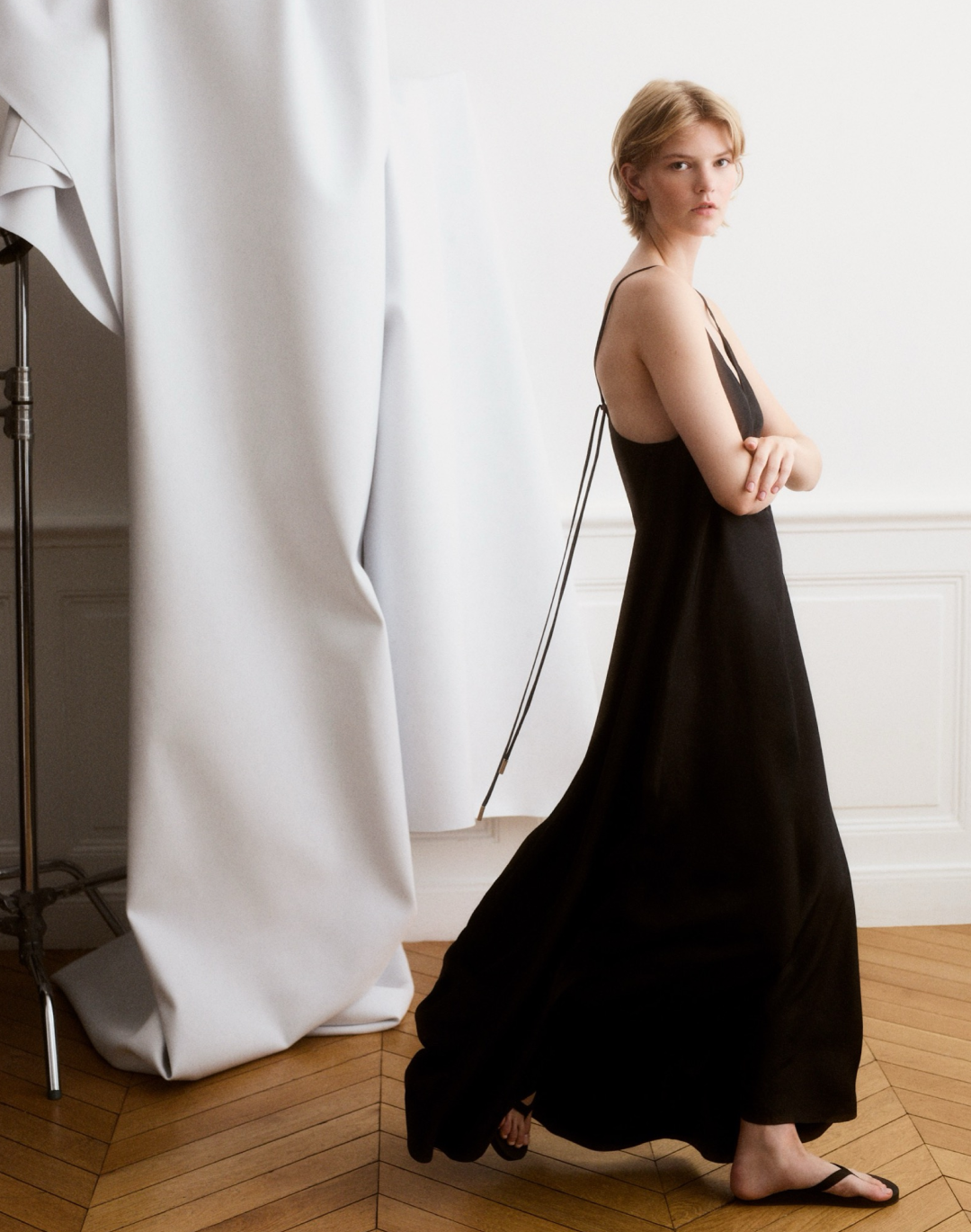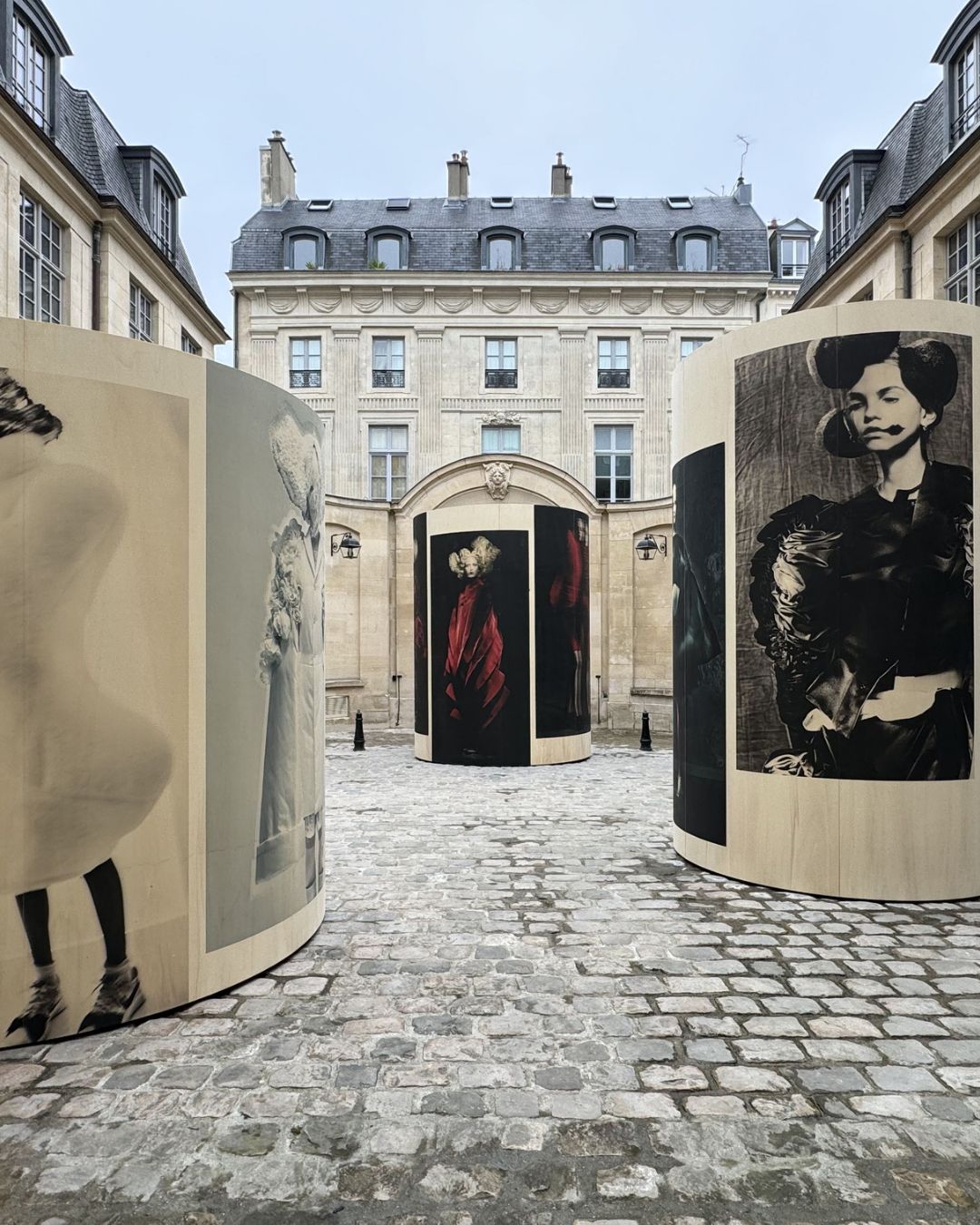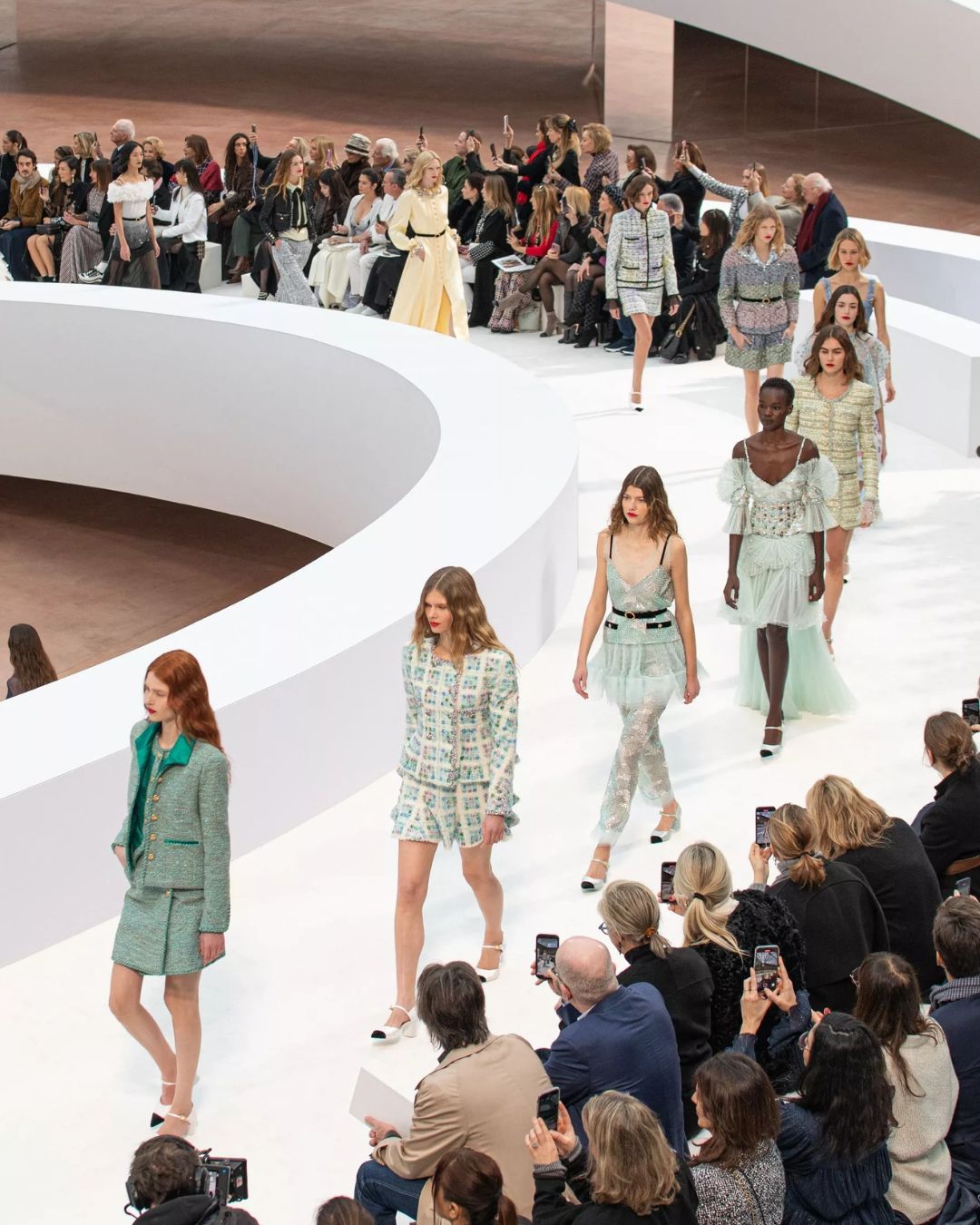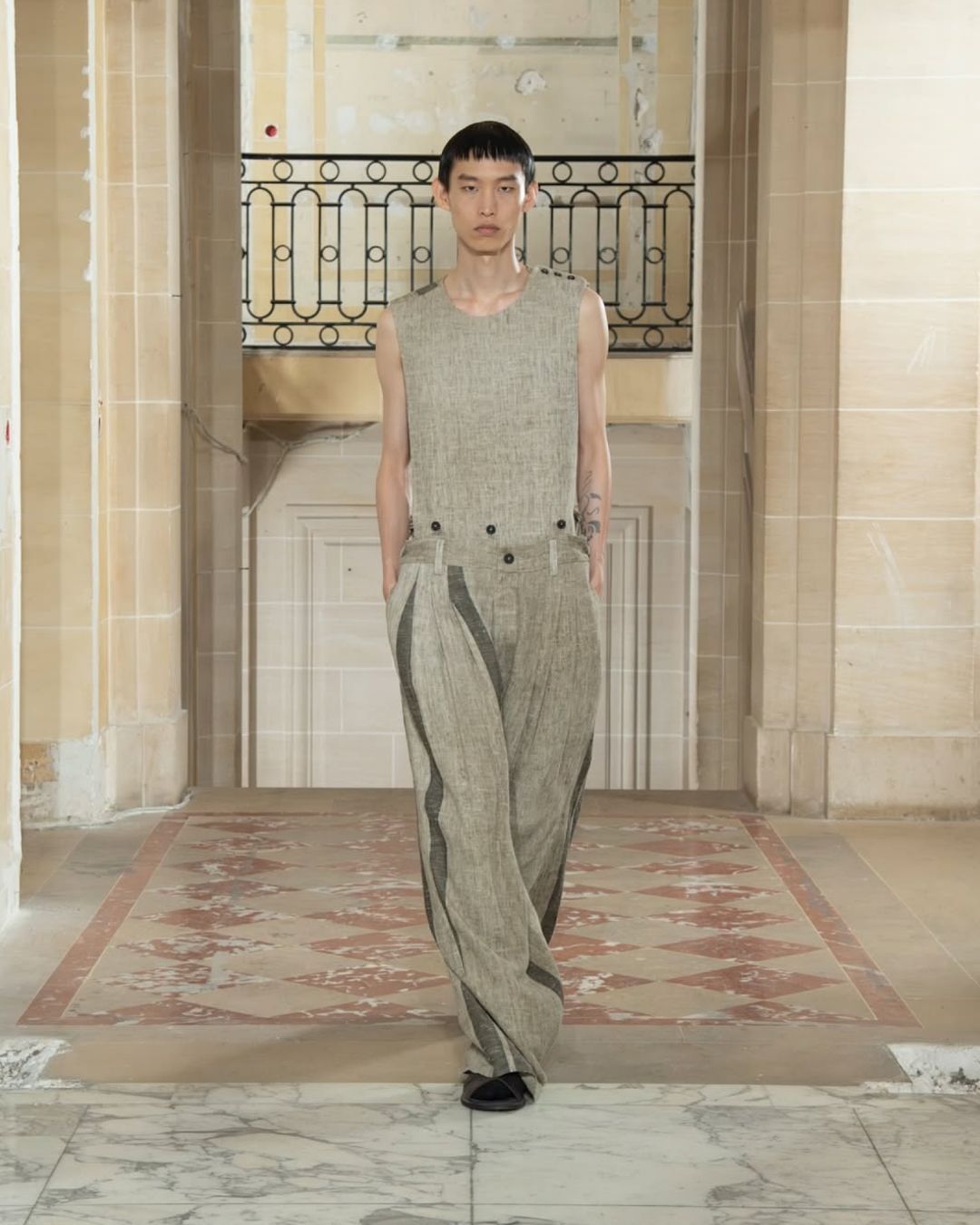
What went down at the Saudi 100 Brands event in Paris Saudi talent on display at Paris Fashion Week
Amidst the whirlwind of fashion shows and presentations that animated the streets and numerous venues of Paris, the initiative of the Saudi Fashion Commission, named Saudi 100 Brands, made its triumphant return, showcasing the work of 16 Saudi brands entirely owned and operated by women at Les Cordoliers. Deepening its purpose of supporting the fashion industry of the Kingdom of Saudi Arabia, the Saudi Fashion Commission aimed to highlight the female voices emerging from the Kingdom – a series of talents embodying the zenith of Saudi excellence in fashion. Just like last year, the event lasted for a remarkable three days: the first, on February 28, saw the various brands parade and their owners share about themselves and their work with the press; while in the following days, two more events took place, one in collaboration with nss Magazine on February 29 and another led by Caroline Issa, CEO and Fashion Director of Tank Magazine, on March 1.
All sixteen designers who participated in the showcase represented the manufacturing and cultural richness typical of Saudi Arabia with their own value. One of the most significant presentations was by Mona Alshebil, who blended traditional Saudi culture and contemporary design vibes with the diverse inspiration of Apoa, combining the language of Saudi fashion with that of architecture, broadening horizons through her love of travel. The creations of Ashwaq Almarshad, entirely handmade in Riyadh, astonished onlookers with the sophistication and opulence of their details, while Chador, with a more selective approach, specialized in the modern reinterpretation of the kaftan, a major staple of the Saudi wardrobe, interpreted and updated to meet modern needs. Elsewhere, Charmaleena constructed her collection based on the symbols and references of her own traditions, while Dazluq impressed both critics and audiences with the richness of selected materials and the sartorial rigor of constructions. Kaf by Kaf offered a proposal of luxury made-to-order and entirely customizable garments, while Mashael Al Faris experimented with a collection of demi-couture with extraordinarily attentive details.
In addition to other protagonists, there have been MD29 brand emerged in 2018 and established itself as one of the most important in Saudi Arabia, fueled by a constant commitment to its innovative creativity and original designs that have captured the attention of young consumers throughout the Kingdom; Abadia, an ethical luxury brand that blends Saudi culture through timeless contemporary designs with particular attention to fabrics and sartorial details with the idea that each piece should be cherished and considered an investment destined to be preserved and passed on. More modern and sleek, the couture brand Pavone has proposed outfits with a strong femininity, embroidered under the guidance of Shouq Abdulrahman Almubarak who studied embroidery from the legendary Lesage in Paris and since 2016 has been presenting couture outfits full of elegance and modern lines while RMRM young brand based in Riyadh that has told the Saudi culture through a more streetwear approach through shirts and jackets covered with graphics, brightly colored sweatshirts and pants with a modern cut that tells the creativity of the new generation of Saudi designers. Samar Nasraldin a designer born in Jeddah who brought to Paris a sober and essential collection with fluid lines, intent on celebrating female individuality and since 2015 has been presenting interesting variations on the traditional Saudi costume such as the integration of the classic veil into modern dresses according to new but respectful fits of tradition, while The Dropped Collection, founded on a minimalist style, has embodied freshness in ready-to-wear with modernity and simplicity focusing on tailoring and impeccable cuts and uncompromising quality with shapes and structures creating a capsule wardrobe with exceptional craftsmanship respecting a zero waste policy. Yasmina Q, the first Saudi knitwear brand, which uses materials from sustainable sources to promote environmental conservation and kindness to our world, under the direction of founder Yasmina Qanzal involving various communities in the UK, Indonesia and Hong Kong in its production process, with particular attention to the proximity of materials, community-based incentives, and regeneration concept. Finally, there was Yataghan Jewellery, the brand founded by Sarah Abudawood and worn among others by Queen Rania of Jordan, who founded the label in 2008, soon becoming famous for its necklaces and earrings inspired by the name from the renowned "YATAGHAN" sword, an exquisitely crafted piece of art famous during the Ottoman Empire and still produces all its jewelry handmade with exquisitely intricate designs.
















































































